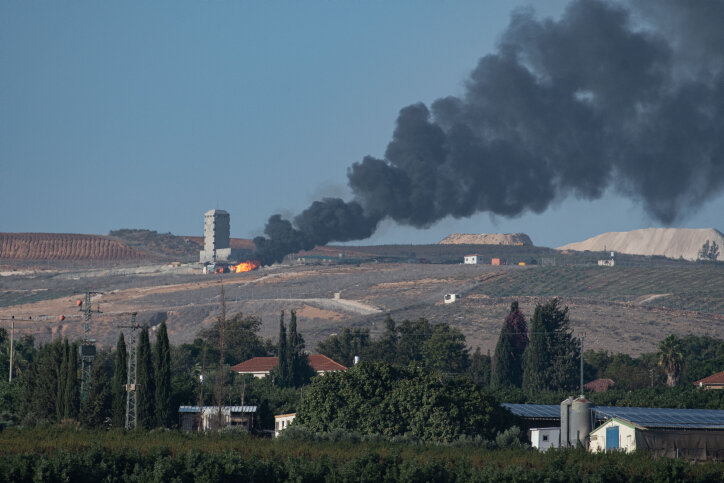Israel announces truce with Hezbollah

Israeli Prime Minister Netanyahu on Tuesday night announced he has agreed to a ceasefire agreement with the Lebanese Hezbollah.
In announcing the ceasefire, Netanyahu said the length of the ceasefire depended on Hezbollah. “We will maintain full freedom of movement… if Hezbollah moves rockets into position we will attack.”
The Israeli war cabinet approved the ceasefire following two months of full-blown war on Lebanon, Israeli Channel 12 reported.
Before the announcement, the Zionist regime launched massive air raids on the Lebanese capital Beirut, killing at least seven people and injuring 37, according to Lebanon's health ministry.
Hezbollah also resumes rocket fire on sensitive facilities inside Israel.
Hezbollah has previously said that a total end to Israeli aggression and protection of Lebanon’s sovereignty were its conditions for accepting any ceasefire deal.
The United States and France were expected to announce the ceasefire deal in a joint statement.
Lebanon's parliament will meet on Wednesday morning to discuss the agreement.
In a televised address, Netanyahu admitted that lack of weapons was one of the reasons behind accepting the ceasefire, saying his regime intends to "replenish depleted arms supplies and give the army a rest."
The accord, clearing the way for an end to a conflict that has killed thousands of Lebanese and displaced over one million since it was ignited by the Gaza war last year, was brokered by the United States and France and was expected to take effect on Wednesday.
A senior Hezbollah official said on Tuesday that the Lebanese resistance movement will remain active after its war with Israel ends, including by helping displaced Lebanese return to their villages and rebuilding areas destroyed by Israeli strikes.
"From now, we confirm that the Resistance (Hezbollah) will remain, will continue, will carry on," Hassan Fadlallah, who is also a member of Lebanon's parliament, told Reuters in an interview.
"And the proof of that is that when Israel's aggression against Lebanon ends, then the Resistance that was fighting in the battlefield will itself be working to help its people to return (home) and to rebuild," he said.
Fadlallah said that Hezbollah's health, social and developmental institutions were prepared "for the day after" and would coordinate with the Lebanese state to shelter the displaced, remove rubble from damaged areas, bury victims and help with reconstruction.
The Lebanon ceasefire agreement requires Israeli troops to withdraw from south Lebanon and Lebanon's army to deploy in the region, officials say. Hezbollah would end its presence along the border south of the Litani River.
Lebanese Foreign Minister Abdallah Bou Habib said the Lebanese army would be ready to have at least 5,000 troops deployed in southern Lebanon.
Eu's Borrell: “No excuses” for Israel to refuse ceasefire
Foreign ministers from leading industrialized countries threw their strong support behind the ceasefire but sidestepped the question of whether to enforce an international arrest warrant for Netanyahu and his former war minister Yoav Gallant over the war crimes and crimes against humanity in Gaza, AP reported.
The G7 ministers, meeting in the Italian city of Fiuggi, were joined by the foreign ministers of the “Arab Quintet” — Saudi Arabia, Jordan, Egypt, Qatar and the United Arab Emirates.
The EU’s top diplomat, Josep Borrell, said Tuesday there were “no excuses” for Israel to refuse to accept a ceasefire, saying all its security concerns had been addressed in the U.S.-French-brokered deal.
Borrell said under the proposed agreement, the U.S. would chair a ceasefire implementation committee, with France participating at Lebanon’s request. The outgoing EU foreign policy chief also called for increased pressure on Israel to not give into extremists in the government who were refusing to accept the deal. Speaking on the sidelines of the G7 meeting, he warned that if a ceasefire is not implemented, “Lebanon will fall apart.”
Leave a Comment